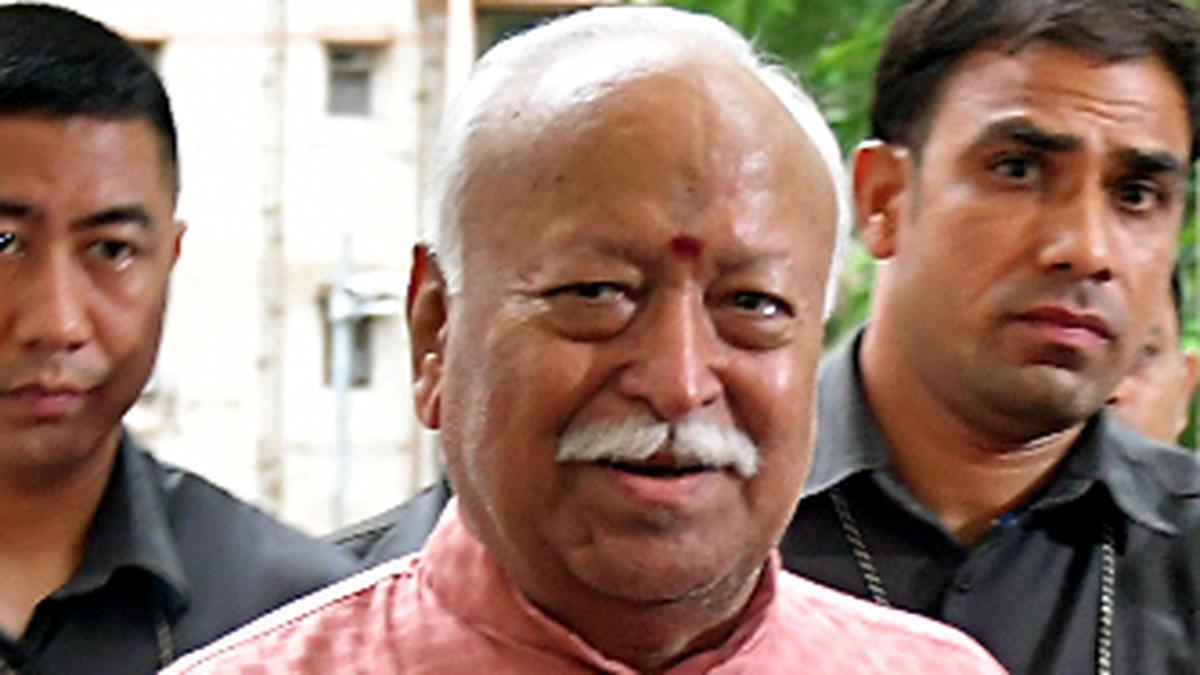
World looks at India with hope that it can find answers to unsolved questions: RSS chief Mohan Bhagwat
The Hindu
Rashtriya Swayamsevak Sangh chief Mr. Mohan Bhagwat has said the world has so far failed to find answers to several questions and now thinks India can provide their solutions.
Rashtriya Swayamsevak Sangh (RSS) chief Mr. Mohan Bhagwat has said the world has so far failed to find answers to several questions and now thinks India can provide their solutions.
Asserting that the work of national awakening was going on in the country, Mr. Bhagwat on July 5 said India needed "intellectual Kshatriya" (warriors).
He was speaking here at the release of eight volumes of the original Valmiki Ramayana, written by Saint Ramdas, and edited by Shri Samarth Vagdevata Mandir based in Dhule of north Maharashtra.
"In order to show direction to the society, it is necessary to establish the embodiment of the ideal king. Samarth Ramdas considered Chhatrapati Shivaji Maharaj as the ideal king after Lord Rama", he said.
The time of Samarth Ramdas's existence was marked by invasions, and Chhatrapati Shivaji Maharaj responded to these invasions, the RSS chief said.
"To fight is just one aspect of protecting religion. But protecting religion does not mean only fighting. Counteracting, enlightening, researching and practising are also ways to protect religion", he said.
Although time has now changed, we are still facing similar issues, Mr. Bhagwat said.

“Writing, in general, is a very solitary process,” says Yauvanika Chopra, Associate Director at The New India Foundation (NIF), which, earlier this year, announced the 12th edition of its NIF Book Fellowships for research and scholarship about Indian history after Independence. While authors, in general, are built for it, it can still get very lonely, says Chopra, pointing out that the fellowship’s community support is as valuable as the monetary benefits it offers. “There is a solid community of NIF fellows, trustees, language experts, jury members, all of whom are incredibly competent,” she says. “They really help make authors feel supported from manuscript to publication, so you never feel like you’re struggling through isolation.”

Several principals of government and private schools in Delhi on Tuesday said the Directorate of Education (DoE) circular from a day earlier, directing schools to conduct classes in ‘hybrid’ mode, had caused confusion regarding day-to-day operations as they did not know how many students would return to school from Wednesday and how would teachers instruct in two modes — online and in person — at once. The DoE circular on Monday had also stated that the option to “exercise online mode of education, wherever available, shall vest with the students and their guardians”. Several schoolteachers also expressed confusion regarding the DoE order. A government schoolteacher said he was unsure of how to cope with the resumption of physical classes, given that the order directing government offices to ensure that 50% of the employees work from home is still in place. On Monday, the Commission for Air Quality Management in the National Capital Region and Adjoining Areas (CAQM) had, on the orders of the Supreme Court, directed schools in Delhi-NCR to shift classes to the hybrid mode, following which the DoE had issued the circular. The court had urged the Centre’s pollution watchdog to consider restarting physical classes due to many students missing out on the mid-day meals and lacking the necessary means to attend classes online. The CAQM had, on November 20, asked schools in Delhi-NCR to shift to the online mode of teaching.









